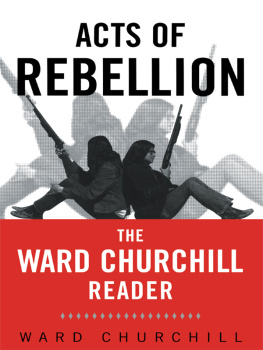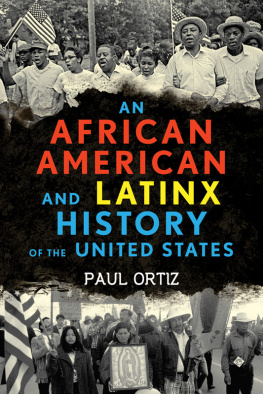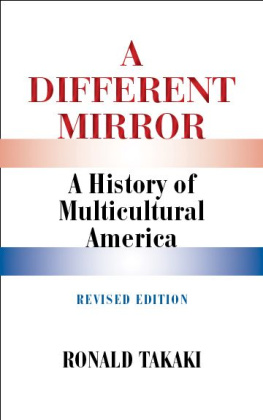Radio Moses Story
Imagine your childhood taking place during the afterbirth of slavery, your teen years during the maturing of a new nation, and your prime years is during the Great Depression. You get through both world wars, the birth of your children, and segregation. Let us not forget about the Korean and Vietnam wars, a major civil rights movement, and the birth of your favorite grandchild.
One voice cries out to inform the world the real story within recorded history but not told except by her, the unknown voice. She was the Paul Harvey of her time, and the cry that helps set equality without anyone knowing who she was. This is a fictitious story for all those voices that had no name, face, or notoriety for who they were.
Introduction
It was the year 1876 when my grandmother, Lillie Mae, was born. Her three brothers, two sisters, and parents lived deep in the heart of the Tennessee on Mr. Charlies cotton farm. Negro families were encouraged to have a lot of kids. They were sharecroppers, which was the legal form of slavery. She and her family were Negros and had very little options but to be hired as laborers. Her parents were originally owned by Mr. Charlie and claimed to be his best workers. Her momma worked inside the house as a cook and field hand. Her daddy was the head mechanic and chief field hand so he had a lot of control and position. After the Civil War and Lincolns Emancipation Proclamation, which set them free, most of the slaves fled to Canada or anywhere else. Mr. Charlie proposed a partnership to her daddy that would allow him to have his own land and produce his own products but only giving him a small portion of his yield. Her parents were excited by this idea so they went for it without thinking or understanding the dark side of the proposal. I believe the British called it tenant farming or serfdom.
The family was very religious and attended church whenever they could. God was essential to the survival of the slaves during that time and before they received their freedom. Their momma learned how to read from Mr. Charlies daughter, Silvia. We were also taught as she was. Our main source of entertainment was reading, singing, and jumping rope. Their momma was always quoting spiritual quotes and saying. Her favorite was:
We ought always to thank God for you, brothers and sisters, and rightly so, because your faith is growing more and more, and the love all of you have for one another is increasing. (2 Thess. 1:3 NIV)
But it was Ms. Harriet Tubman who influenced her the most, especially with this quote:
Every great dream begins with a dreamer. Always remember, you have within you the strength, the patience, and the passion to reach for the stars to change the world.
After a couple of years, they experienced their first touch of reality. They had their biggest yield then the bottom dropped. It was time to pay Mr. Charlie. Their real education began when Mr. Charlie took his portion and then demanded more. Her parents were outraged but asked why they should pay more. He said, I guess you thought all your supplies were free and the equipment had no charge for those two years. He went on to inform them that they also owed him for all that time. It had taken them two years to change over and produce the products so it meant they were already behind. They were deep in Satans pit before they even took their first free air. Now you see why its called legal slavery. Her family was burden for years under those demeaning conditions.
Lillie Mae came of age watching her parents and her family get trapped in a hellish spiral. She was forced to work in Mr. Charlies store as well as a maid in his home. She was only eight years old and her sister was thirteen when they were forced to work and do other services. Her brothers worked the field along with her parents and other sister. Mr. Charlie thought she was less attracted and more suited for fieldwork. They would prayer every morning before starting their day and at the end as well. Lillie Mae would also choice to quote a spiritual quote in hope it would help raise her self-esteem and outlook. She loved Frederick Douglass. Her favorite quote was:
A little learning, indeed, may be a dangerous thing, but the want of learning is a calamity to any people. ( Frederick Douglass )
She was totally different from her parents, especially her daddy. She was an odd eight-year-old that had radical ideals and extreme thoughts. As the old folks would say, she had demons in her because of her outspokenness and ideals. An experience that would haunt my grandmother the rest of her maturing days happened one day she went to Mr. Samuels grocery store along with her mother. It was her mothers turn in line when out of nowhere, Mrs. Kristi came up. The clerk told her momma to step back and let a real woman (a white woman) go first. Lillie did not understand and was highly upset. Before her mamma knew it, she yelled, Its not her turn but my momma! The male clerk jumped over the counter and jerked her arm so hard that he broke it. Her momma did nothing but lowered head and apologized to the man. As they walked out, they heard the clerk saying, What nerve that Negro have! Who is she to speak to him like that? I think she was just embarrassed that she simply spoke. She was angry at the clerk and ashamed at her momma, especially after they realize her arm had being broken. She now understood what Mrs. Tubman used to say, I grew up like a neglected weedignorant of liberty, having no experience of it (Harriet Tubman).
That experience left an impression in her head as well as a deep understanding on how life was. She learned to keep her thoughts silent. It also fed that so-called demon in her even more. Mrs. Tubman said:
Lord, Im going to hold steady on to you, and youve got to see me through.
Never wound a snake, kill it.
She would hold true to those words. She had also developed a passion for the words of a young African American writer named William Edward Burghardt Du Bois. The main thing is the you beneath the clothes and skinthe ability to do, the will to conquer, the determination to understand and know this great, wonderful, curious world.
His words would reside in her and added to her growth and education.
After the Egyptian and Indian, the Greek and Roman, the Teton and Mongolian, the Negro is a sort of seventh son, born with a veil, and gifted with second-sight in this American worlda world which yields him no true self-consciousness, but only lets him see himself through the revelation of the other world. It is a peculiar sensation, this double-consciousness, this sense of always looking at ones self through the eyes of others, of measuring ones soul by the tape of a world that looks on in amused contempt and pity. One ever feels his two-nessan American, a Negro; two souls, two thoughts, two reconciled strivings; two warring ideals in one dark body, whose dogged strength alone keeps it from being torn asunder. (W. E. B. Du Bois)








